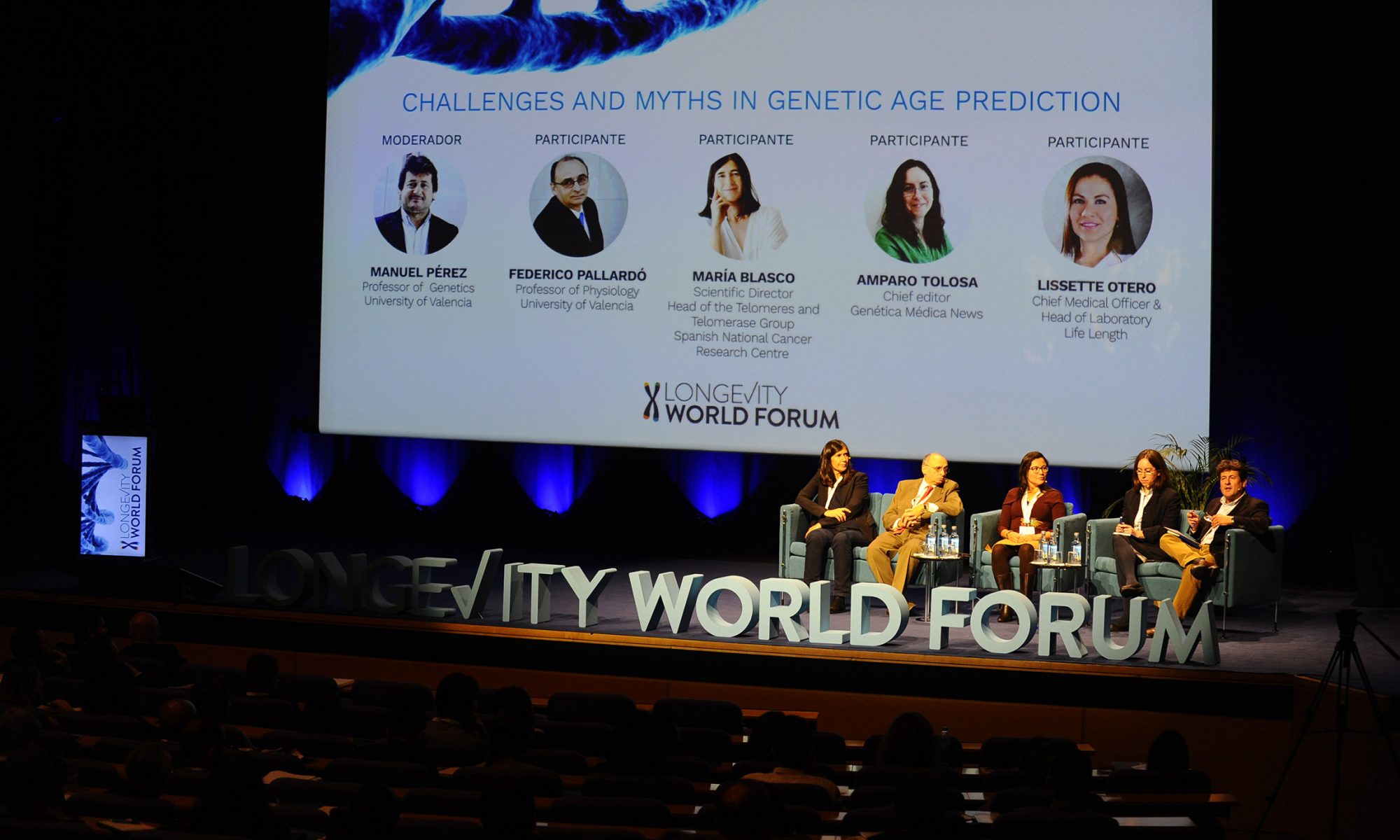Two of the most recent major scientific achievements on longevity have been accomplished by Spanish research teams. Specifically, those led by María Blasco at the Spanish National Cancer Research Centre (CNIO) and by Manuel Collado at the Health Research Institute of Santiago (IDIS). Both professionals will participate at the second edition of the Longevity World Forum, an international congress on healthy aging and life expectancy which will be held on 13, 14 and 15 November in Valencia.
Thus, María Blasco will present some of the work developed by the Telomeres and Telomerase Group of the CNIO, which has shown that longevity can be increased without gene manipulation, using mouse models born with longer than usual telomeres. This not only increases their life expectancy, but also improves their health, since they are better protected against diseases such as cancer and obesity. Dr Blasco will lead one of the conferences included in the symposium of 13 November.
Manuel Collado, who will give a presentation on Thursday 14 November, will explain how an active ingredient extracted from Digitalis or foxglove, a plant very common in Galicia, is able to selectively eliminate senescent cells. “We have sufficient evidence today to affirm that the accumulation of senescent cells contributes significantly to a large number of what are known as age-related diseases and it has even been possible to demonstrate that, by specifically eliminating them, we can generate an improved state of health at an advanced age in experimental animal models”, affirms Dr Collado.
The Longevity World Forum will bring together more professionals from around the world, who will share other breakthroughs on longevity made by the many sectors involved in this field. For example, participants will include Rafael de Cabo, chief of the Translational Gerontology Branch of the National Institute on Aging in Baltimore (USA); Maria Entraigues Abramson, Global Outreach Coordinator of SENS Research Foundation (USA); Pura Muñoz, researcher of the Spanish National Centre for Cardiovascular Research (CNIC), who has this year received the Jaume I Prize for Medical Research for her contributions on the molecular mechanisms of aging.
Also taking part will be Avan Sayer, director of the Newcastle Institute for Ageing (United Kingdom); Reason, co-founder of Repair Biotechnologies, Inc. (USA); Bruno Vellas, doctor of the Aging Unit and chairman of the Gerontopole at the University Hospital of Toulouse (France); Álvaro Pascual-Leone, professor of Neurology at the Harvard Medical School (USA); and Manuel Serrano, a doctor and professor who is currently working on the ICREA programme of the Institute for Research in Biomedicine of Barcelona (IRB Barcelona) leading research into senescence and cellular plasticity. “We want to understand how tissues respond to damage, which includes aging, degenerative diseases and cancer,” explains Dr Serrano.
Altogether, the 2019 edition of the Longevity World Forum will serve to inform on the latest research currently underway on longevity, the recently proven guidelines on the best ways to live a longer and healthier life, as well as the social and economic effects implicit to societies with increasing life expectancy. For the second year running, Spain will be the international forum par excellence on healthy aging and, furthermore Valencia is consolidated as one of the scientific capitals of the world.

